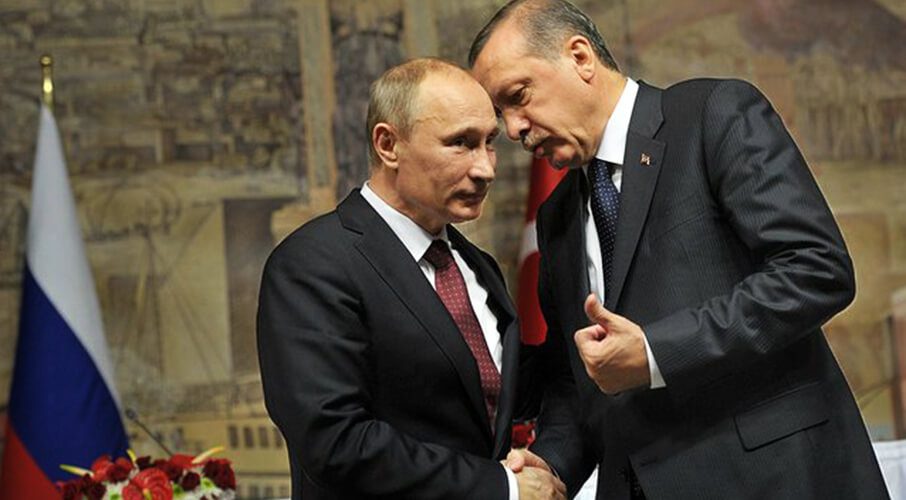 While continuing its pressure on Russia, Ottawa must place greater diplomatic pressure on an emboldened Azerbaijan, especially through Turkey, by way of NATO and other multilateral fora, write Kiarash Ighani and Jonathan Berkshire Miller in the Toronto Star.
While continuing its pressure on Russia, Ottawa must place greater diplomatic pressure on an emboldened Azerbaijan, especially through Turkey, by way of NATO and other multilateral fora, write Kiarash Ighani and Jonathan Berkshire Miller in the Toronto Star.
By Kiarash Ighani and Jonathan Berkshire Miller, October 19, 2020
Last week, Canada’s Minister of Foreign Affairs, François-Philippe Champagne, announced Ottawa’s decision to suspend arms export permits to Turkey amidst allegations that Canadian military technology intended for Turkey, a NATO ally, was being sent to Azerbaijan and used in bombing civilian targets in the disputed Nagorno-Karabakh region and also in bordering Armenia.
Although its population is overwhelmingly ethnically Armenian, Nagorno-Karabakh is legally recognized as Azerbaijan’s territory and has been a hotbed of conflict for decades. This mountainous region, sandwiched between the Caspian and Black Seas, has been at the crossroads of great powers for millennia, whether between the Persian and Roman empires in antiquity, or between later Iranian, Russian, and Ottoman-Turkish empires.
During the Soviet era, Nagorno-Karabakh had the status of an autonomous oblast in the Azerbaijan Soviet Socialist Republic. As a result, the enclave experienced self-rule, to some degree, for several decades. The Kremlin, however, decided to leave this region within Azerbaijan’s mandate instead of including it as a part of Armenia’s in order to sow the seeds for future ethnic tensions and conflict.
This is far from the only example of Moscow’s creating borders for nation-states that did not fully reflect the people of that nation. In Soviet controlled Central Asia, for example, the historically Tajik-majority cities of Samarqand and Bukhara were put in Uzbekistan’s borders.
Similarly, the border disputes in the Fergana Valley, which is littered with a multitude of enclaves and exclaves, make friendship amongst Tajikistan, Uzbekistan, and Kyrgyzstan today seem like a distant dream. Suffice it to say, Russian imperial policies of the past precipitated the conflicts of today in and among several countries that were formally part of the Soviet Union.
Upon the Soviet Union’s dissolution in 1991, war broke out between the newly founded republics of Azerbaijan and Armenia in Nagorno-Karabakh. This conflict, which always carried with it ethnic and religious undertones, reached a ceasefire — brokered by Moscow — in 1994.
The result was a decisive Armenian military victory and the de-facto independence of the Armenian-majority Republic of Artsakh — what the Nagorno-Karabakh region is called by its inhabitants — from Azerbaijan, even though the latter’s political sovereignty over the region is recognized by all members of the United Nations.
Azerbaijan has sought to assert that sovereignty, on the ground, ever since. So what has changed? Until now, Azerbaijan had resisted springing back into military action to retake effective control of Nagorno-Karabakh as a result of the fear of Russian intervention.
In recent years, however, Azerbaijan’s calculus has been changing. Turkey’s military and political commitment to its Turkic and Muslim allies, especially in recent years under the presidency of Recep Tayyip Erdogan, has subsided Azerbaijan’s fears of Moscow’s intervention.
This creates a complex and dangerous situation playing out in Nagorno-Karabakh, where recent clashes between Armenia and Azerbaijan could escalate into a broader regional war involving both proxies — Russia and Turkey.
A larger conflict would have serious implications for Canada and its allies, given Turkey’s membership in NATO. Magnifying these concerns is the fact that Ankara and Moscow are feuding in other theatres as well. Their rivalry has been amplified by their support for opposite sides in the long raging civil war in Syria.
Moscow’s internal propaganda machinery aims to paint this as a religious conflict in which Orthodox Christianity’s protection rests upon Russian intervention. This exact narrative was used to justify much of Moscow’s military interventions in Syria — a country with a sizable Christian minority population and several important historical sites for the Orthodox Church.
Orthodox Christianity plays a big role in the makeup of Russia’s culture and political psyche. As a result, the Kremlin’s shaping of foreign policy narratives to account for a defence of Orthodox Christianity, in Syria, and now, again, in Armenia, serves as a strong propaganda tool. The irony, of course, is that Moscow had no qualms killing its co-religionists in Ukraine and in Georgia.
While continuing its pressure on Russia, Ottawa must place greater diplomatic pressure on an emboldened Azerbaijan, especially through Turkey, by way of NATO and other multilateral fora. There is nothing new about the Southern Caucasus region being heavily disputed and embroiled with conflict, but the recent provocations by both sides could spin off into a devastating and more protracted regional conflict.
Kiarash Ighani is a research intern at the Macdonald-Laurier Institute. J. Berkshire Miller is deputy director and senior fellow at the Macdonald-Laurier Institute




